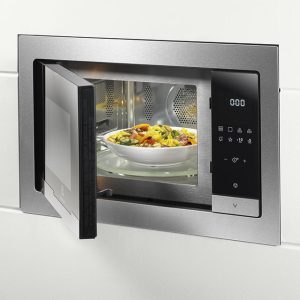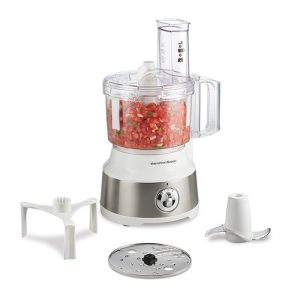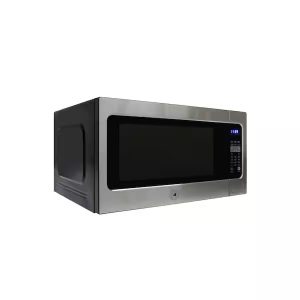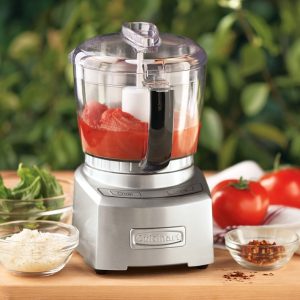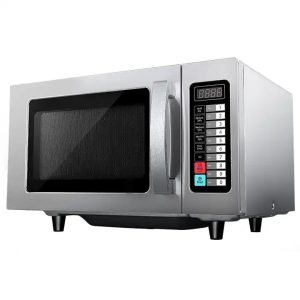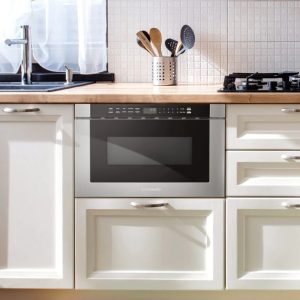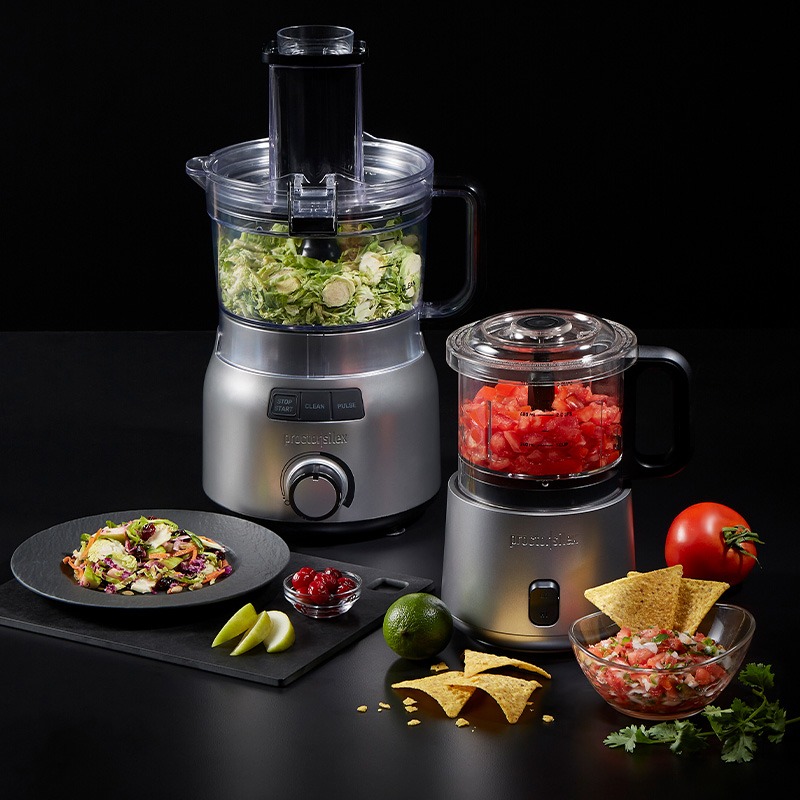
Introduction to Kitchen Gadgets
With so many options available, choosing the mixer vs food processor for your culinary needs is crucial. Whether you are a novice cook or a seasoned chef, understanding the specific functions and benefits of different kitchen appliances like mixers and food processors can elevate your cooking game. Let’s dive into what mixers and food processors bring to the table and how they differ.
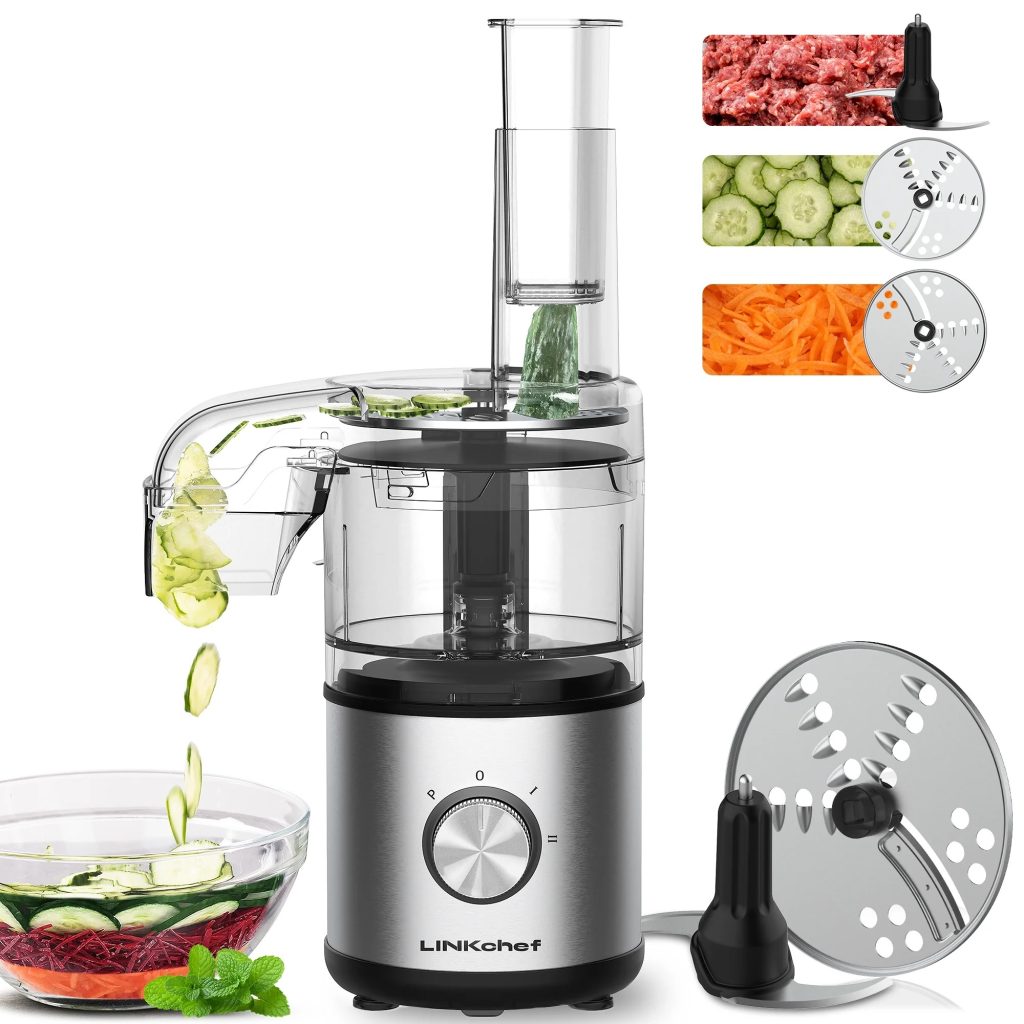
The Role of Mixers in the Kitchen
Mixers are a staple in many kitchens due to their proficiency in tasks involving mixing, whipping, and kneading. Essential for bakers, a mixer excels in creating smooth batters and airy whipped creams. Stand mixers and hand mixers rank high in popularity. They are the backbone of recipes that require precision and consistency, such as cakes, bread, and meringues.
The Role of Food Processors in the Kitchen
On the other hand, food processors stand out with their ability to handle a variety of tasks that mixers cannot. A food processor’s sharp blades make chopping vegetables, grinding nuts, and pureeing soups quick and effortless. They are versatile machines designed to take on heavy-duty chopping and slicing jobs that can be time-consuming and laborious when done by hand. A food processor is a multitasking hero for those who love cooking but not the prep work involved.
Key Differences Between Mixers and Food Processors
When deciding whether to purchase a mixer or food processor, understanding their key differences is essential. Both appliances enhance kitchen productivity but in distinct ways. Let’s explore these differences to help you make the best choice for your cooking needs.
Functionality and Versatility
Mixers specialize in combining ingredients. They are ideal for batters, doughs, and whipped toppings. Food processors, however, excel in food prep tasks. They chop, slice, and puree with ease. While mixers are essential for baking, food processors offer broader functionality for meal preparation.
Design and Mechanism
The design of mixers focuses on mixing bowls and attachments like beaters and dough hooks. Their mechanisms are designed to create a uniform mix. Food processors come with various blades and discs. These adapt to chop, shred, and grind. The two devices have different features for their specific uses.
Pros and Cons of Using a Mixer
In mastering the art of baking and dessert-making, a mixer stands as an essential tool. Yet, like all kitchen gadgets, it has its strengths and weaknesses. Reflecting on these will guide your choice and ensure your kitchen is well-equipped for your culinary ambitions.
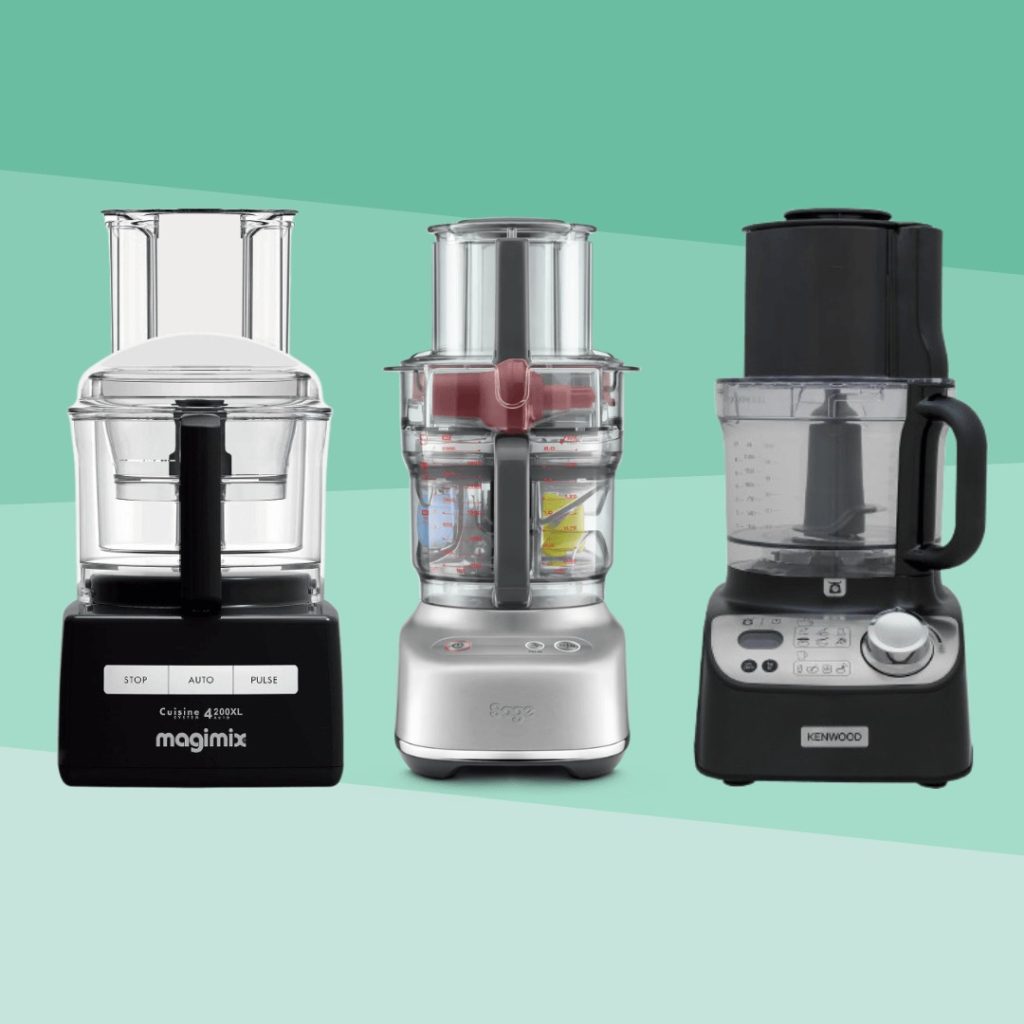
Advantages of Owning a Mixer
Owning a mixer comes with a number of benefits that make it a beloved tool for any baker:
- Time-Saving: Mixers drastically reduce the time needed for basic tasks like creaming butter and sugar.
- Consistency: Achieve smooth, uniform batters and doughs effortlessly, a critical factor for successful baking.
- Versatility: With various attachments, mixers can whip cream, knead dough, and even mix meatballs.
- Ease of Use: Mixers are user-friendly, allowing even novice bakers to achieve professional results.
- Volume: They can handle large quantities at once, which is perfect for big batches of cookies or cakes.
These strengths make mixers a go-to appliance, especially for tasks that require precise texture and consistency.
Situations Where Mixers Fall Short
Despite their advantages, mixers aren’t the jack-of-all-trades of the kitchen and do have limitations:
- Chopping and Cutting: Lacking the necessary blades, mixers can’t chop veggies or nuts.
- Heavy Doughs: Some mixers may struggle with very stiff or dense doughs, which can put a strain on their motors.
- Limited Food Prep: When it comes to preparing ingredients like slicing or shredding, mixers offer no help.
- Space Consumption: Stand mixers, in particular, take up a significant amount of counter space.
- Cost: High-quality mixers can be an investment, which may not be justified for infrequent use.
Recognizing where a mixer excels and where it falls short is crucial when selecting the right kitchen appliance. If you find yourself mainly baking and whipping up desserts, a mixer is an indispensable ally.
Pros and Cons of Using a Food Processor
Just as mixers have their distinct advantages, food processors also come with their own set of benefits and limitations.
Advantages of Owning a Food Processor
Investing in a food processor could significantly streamline your kitchen workflow:
- Speedy Food Prep: These gadgets make quick work of chopping and dicing.
- Versatile Uses: Beyond chopping, they grate, shred, and make dough.
- Powerful Motors: They handle tough foods like raw carrots and hard cheeses.
- Consistent Results: Achieve uniform cuts and fine purees without manual labor.
- Mass Processing: Process large amounts of food at once, saving more time.
A food processor can prove invaluable in a busy kitchen, tackling a variety of tasks that would typically be time-intensive.
Limitations of Food Processors
Food processors are not without their disadvantages:
- Not for Baking: They’re less effective with tasks like whipping cream or kneading bread dough.
- Noisy Operation: The powerful motor can be loud during use.
- Complex Assembly: Multiple parts may require assembly, which can be cumbersome.
- Cleaning Challenges: More parts mean more cleaning.
- Space Requirements: They need storage space for all their attachments and parts.
Understanding these pros and cons will help you decide if a food processor fits your cooking habits and kitchen setup.
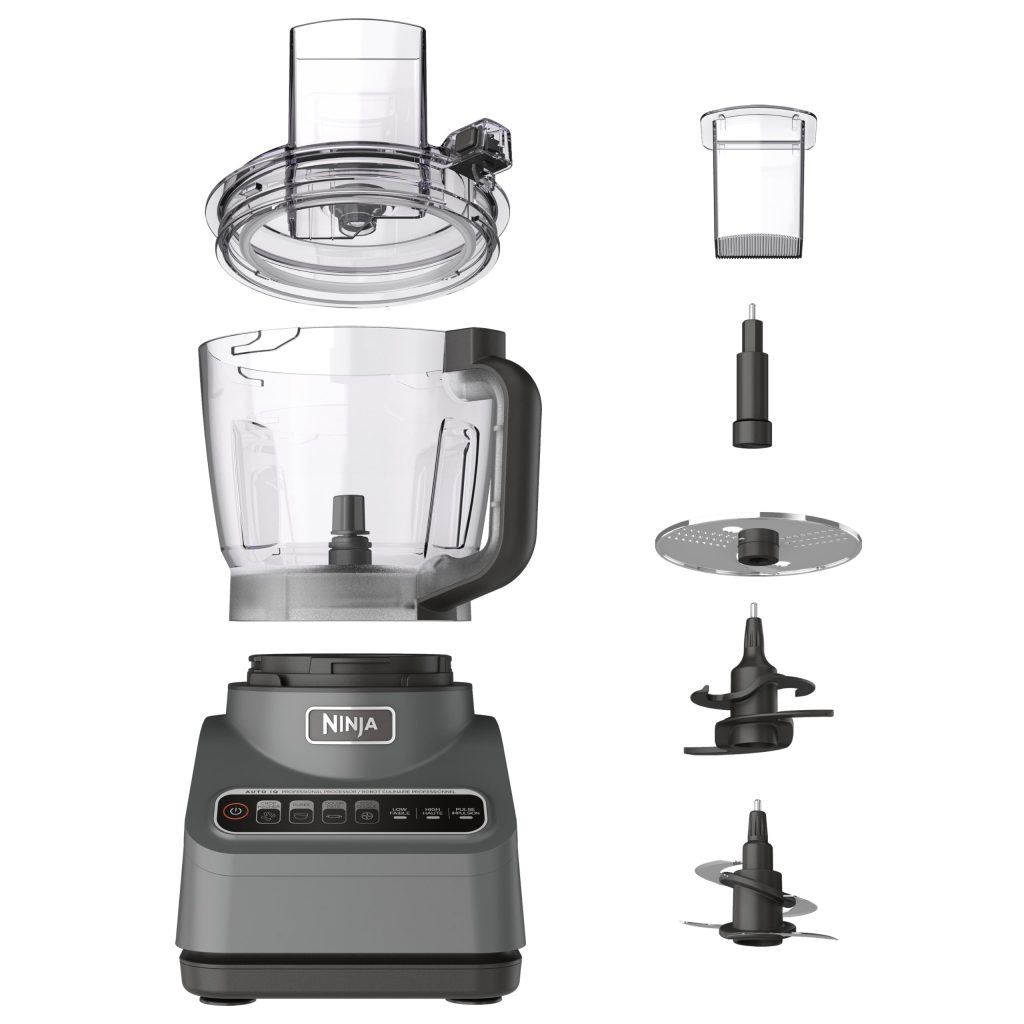
Culinary Tasks Best Suited for Mixers
When considering a mixer vs food processor, it’s helpful to know which tasks each excels at. Here’s a look at the tasks where mixers come out on top.
Perfecting Baked Goods
If you’re passionate about baking, a mixer is your best friend in the kitchen. Mixers are designed to blend ingredients to the perfect consistency for a range of baked items. Use a mixer for:
- Creaming butter and sugar into a fluffy base for cookies and cakes.
- Mixing cake batter to achieve a smooth, lump-free consistency.
- Kneading bread dough until it’s elastic and ready for the oven.
- Preparing pancake or waffle batter that’s free from clumps.
With a mixer, achieving a precise mix is not just possible; it’s guaranteed.
Culinary Tasks Best Suited for Food Processors
When it comes to tasks that require precision cutting or working with tough ingredients, food processors are the ideal kitchen gadget. Their sharp blades and powerful motors enable cooks to perform a variety of culinary tasks with ease. Here are specific tasks that showcase the food processor’s strengths:
Chopping and Dicing Made Easy
Food processors are unmatched when it comes to chopping and dicing. They transform time-consuming prep work into a quick and easy process. Here’s how they excel:
- Quickly chopping onions, garlic, and herbs without tears or hassle.
- Dicing vegetables uniformly, perfect for salads, stews, or sides.
- Making bread crumbs or chopping nuts for toppings and crusts.
- Preparing homemade salsa, pesto, or dips with a few pulses.
These tasks highlight why a food processor is indispensable for those who value precision and speed in their food preparation.
Tips for Choosing Between a Mixer and Food Processor
Selecting the right kitchen tool can enhance your culinary experience and efficiency. Before making a decision, consider how a mixer or food processor will fit into your cooking style and kitchen space.
Considering Your Cooking Style
Reflect on your cooking habits before investing in a mixer or food processor:
- Do you bake often? Mixers are a baker’s best friend.
- Are soups, salsas, or chopped vegetables a staple in your meals? A food processor may be more helpful.
- How much do you enjoy food prep? If you dislike chopping, a food processor is a good time-saver.
- For tasks like whipping cream or kneading dough, mixers are indispensable.
Make a list of common tasks and check which appliance fits most of them.
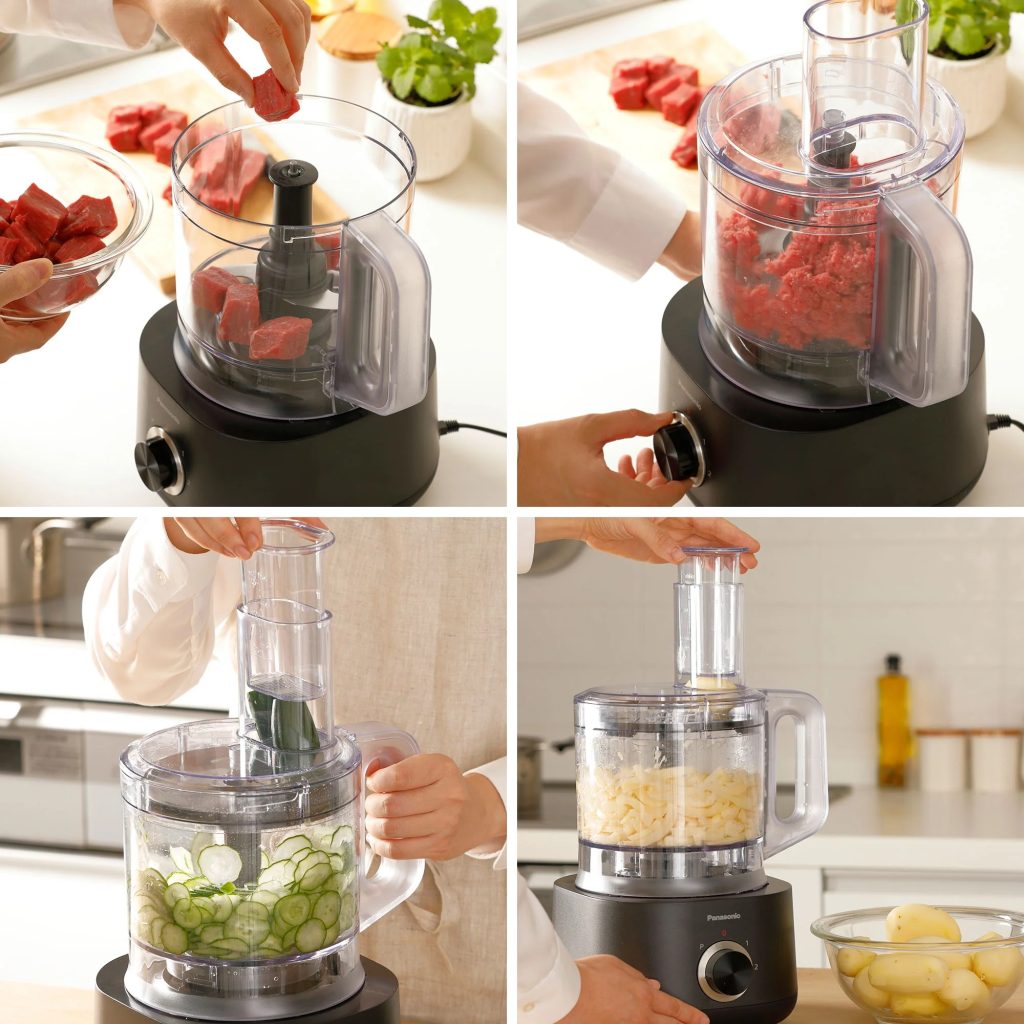
Conclusion
Choosing rightly between a mixer vs food processor boils down to your cooking needs. Reflect on tasks you do often. Are they mixing and baking focused? A mixer may be best. Or, do food prep tasks like chopping and dicing dominate? Then, consider a food processor. Also, think about your kitchen space. Big appliances need storage and counter space. Match your needs and space with the right tool, and your cooking will flourish.
